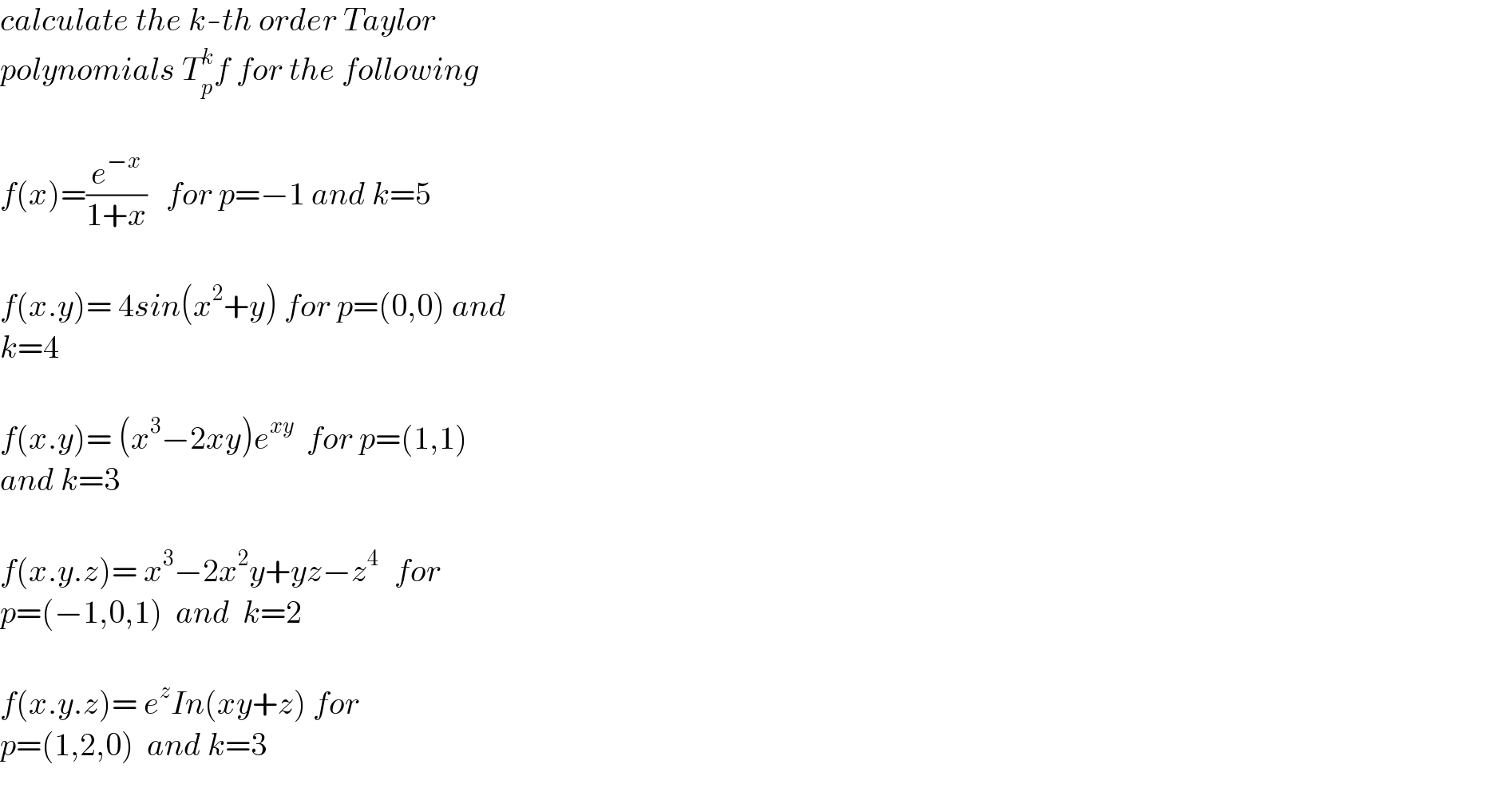
Question Number 131735 by LYKA last updated on 07/Feb/21

$${calculate}\:{the}\:{k}-{th}\:{order}\:{Taylor} \\ $$$${polynomials}\:{T}_{{p}} ^{{k}} {f}\:{for}\:{the}\:{following} \\ $$$$ \\ $$$${f}\left({x}\right)=\frac{{e}^{−{x}} }{\mathrm{1}+{x}}\:\:\:{for}\:{p}=−\mathrm{1}\:{and}\:{k}=\mathrm{5} \\ $$$$ \\ $$$${f}\left({x}.{y}\right)=\:\mathrm{4}{sin}\left({x}^{\mathrm{2}} +{y}\right)\:{for}\:{p}=\left(\mathrm{0},\mathrm{0}\right)\:{and} \\ $$$${k}=\mathrm{4} \\ $$$$ \\ $$$${f}\left({x}.{y}\right)=\:\left({x}^{\mathrm{3}} −\mathrm{2}{xy}\right){e}^{{xy}} \:\:{for}\:{p}=\left(\mathrm{1},\mathrm{1}\right)\: \\ $$$${and}\:{k}=\mathrm{3} \\ $$$$ \\ $$$${f}\left({x}.{y}.{z}\right)=\:{x}^{\mathrm{3}} −\mathrm{2}{x}^{\mathrm{2}} {y}+{yz}−{z}^{\mathrm{4}\:} \:\:{for} \\ $$$${p}=\left(−\mathrm{1},\mathrm{0},\mathrm{1}\right)\:\:{and}\:\:{k}=\mathrm{2} \\ $$$$ \\ $$$${f}\left({x}.{y}.{z}\right)=\:{e}^{{z}} {In}\left({xy}+{z}\right)\:{for}\: \\ $$$${p}=\left(\mathrm{1},\mathrm{2},\mathrm{0}\right)\:\:{and}\:{k}=\mathrm{3} \\ $$
